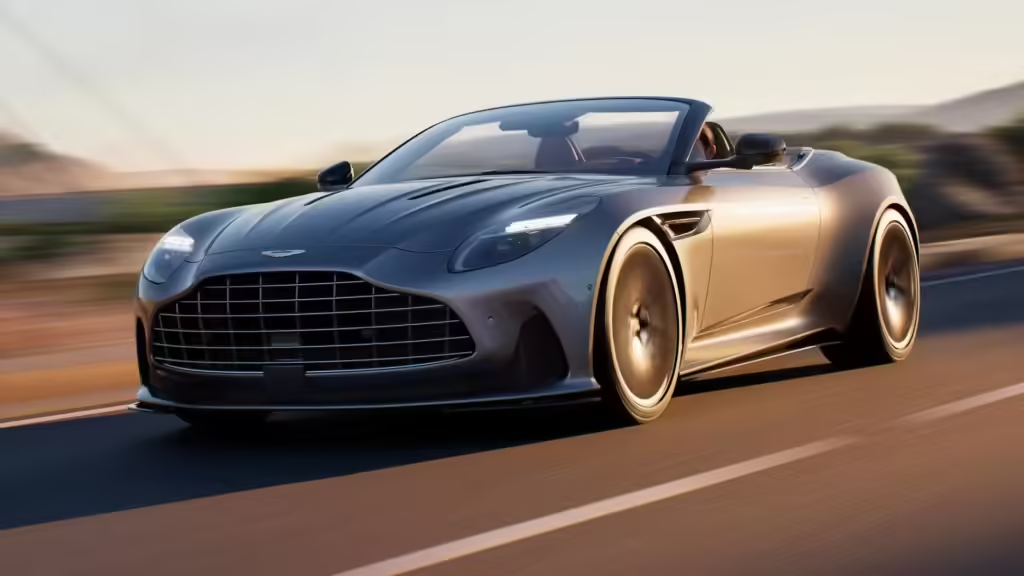
Luxury carmaker Aston Martin saw its share price plunge by more than 20% following an announcement that its profits for the year would fall short of expectations. The British brand, renowned for its association with fictional spy James Bond, has been hit by ongoing supply chain disruptions and a drop in sales in China.
Stellantis, the parent company of brands like Peugeot, Citroën, Fiat, and Jeep, also experienced a sharp decline in share value, falling by over 14% after issuing a similar profit warning on Monday.
European carmakers have been struggling amid falling sales and mounting competition from international rivals, with the sector seeing its earnings impacted across the board.
Aston Martin Faces Multiple Challenges
Aston Martin, known for producing luxury vehicles in limited quantities, sold 6,620 cars last year, with around 20% of its sales coming from the Asia-Pacific region. However, demand in China has softened due to the country’s slowing economy, hurting sales of high-end models.
In addition to waning demand, Aston Martin has faced production delays caused by problems with several suppliers, leading to a projected shortfall of around 1,000 vehicles this year. As a result, the company no longer expects sales growth, and profits are now predicted to fall below market expectations.
Adrian Hallmark, who recently took over as Aston Martin’s CEO, emphasized the need for “decisive action” to adjust production but remains optimistic about the brand’s long-term potential.
Stellantis and Industry-Wide Struggles
Stellantis, a major player in the automotive industry, is the latest large manufacturer to cut its financial forecasts, citing a challenging business environment. Weaker demand in the U.S., a key market, has forced Stellantis to offer discounts to clear unsold inventory, while competition from Chinese brands has intensified.
These factors are expected to result in significantly lower profit margins than originally forecasted, contributing to the sharp drop in the company’s share price.
The difficulties facing Stellantis and Aston Martin are emblematic of a broader downturn in the European automotive sector. Volkswagen recently issued its second profit warning in three months, while Mercedes-Benz and BMW have also lowered their profit outlooks in recent weeks.
Declining EV Sales
The electric vehicle (EV) market, which has been a major focus of investment for many automakers, is also facing headwinds. EV sales in Europe dropped nearly 44% in August compared to the previous year, with market share shrinking from 21% in 2023 to 14.4%. This decline has been attributed to the reduction or removal of subsidies for EV buyers in key markets like Germany and France.
Meanwhile, the European Union is set to vote on imposing steep tariffs on electric vehicle imports from China, a move aimed at protecting local manufacturers from what the EU claims are unfair subsidies for Chinese companies. However, the proposal has sparked mixed reactions within the industry.
The combination of weak demand, supply chain issues, and heightened competition is creating significant challenges for Europe’s carmakers, with many now facing an uncertain future.





